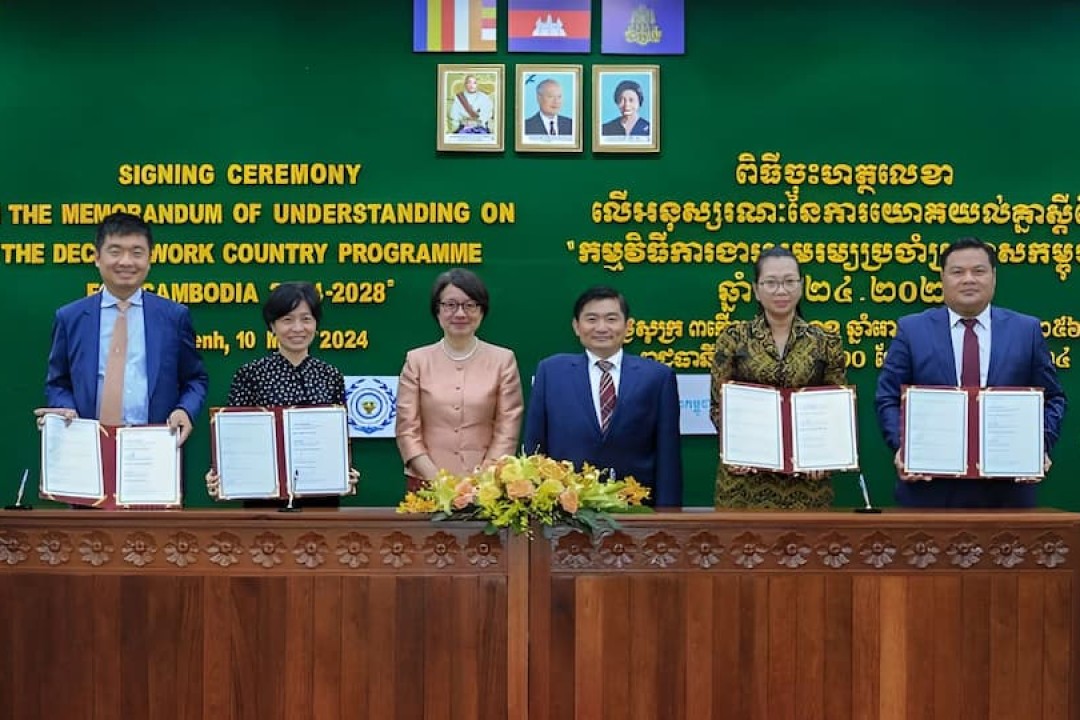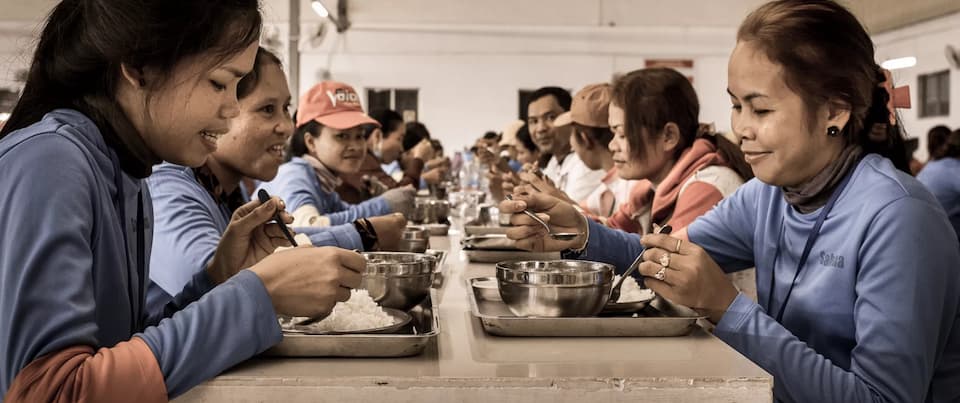Cambodia and ILO To Continue 'Decent Work Country Programme' Until 2028

Cambodia and the International Labour Organization (ILO) will put human capital, formalisation, and social dialogue at the centre of their efforts to support decent, productive and sustainable work for all Cambodians said a press release after the 2024-28 Decent Work Country Programme (DWCP) Cambodia was formally signed.
The agreement saw representatives of the Ministry of Labour and Vocational Training, the Cambodian Federation of Employers and Business Associations, Cambodian Trade Unions and Xiaoyan Qian (ILO Country Director for Thailand, Cambodia and Lao People’s Democratic Republic) sign at a ceremony in Phnom Penh in May 2024.
Xiaoyan Qian said that the DWCP would, “play an important role in supporting Cambodia along the path of development which it has travelled over the past 25 years. By strengthening efforts to attain decent, productive and sustainable work for all, the Country Programme will contribute towards Cambodia’s Vision 2030 and 2050 roadmaps. It will likewise support national plans for LDC graduation as well as help achieve the SDG agenda.”
This DWCP is the sixth since 2005 and part of the wider UN Sustainable Development Cooperation Framework (UNSDCF) 2024-2028 in Cambodia, which supports the Kingdom's national development objectives and the Sustainable Development Goals (SDGs).
The Decent Work Country Programme (DWCP) 2024-2028 sets out key areas for cooperation to promote and advance decent work in Cambodia. The DWCP is the framework for delivering ILO’s support to its member countries, setting out the priority areas for cooperation and collaboration added a statement.
What Does The 6th DWCP Aim To Do In Cambodia

DWCP has a range of goals and aims, and in the Cambodian context, it will try to promote social dialogue and “harmonious industrial relations and rights at work.”
Sovann Vannaroth, Permanent Secretary of State at the Ministry of Labour and Vocational Training, re-iterated that the DWCP is “well aligned with Cambodia's vision for 2050 as a higher-income country, the Cambodian Sustainable Development Goals, and Pentagonal Strategy Phase 1.”
Some of the focus areas of the DWCP include:
- Building human capital by strengthening and expanding social protection.
- Enhancing technical and vocational skills systems.
- Improving public employment support services.
- Promoting a more formalised, inclusive and green economy.
- Support labour dispute resolution mechanisms.
- Implement national and international labour standards.
This extends to improving the digitalisation efforts to support small businesses and creating more work opportunities, particularly for women, “through greater access to affordable quality childcare and other care services.”
Promoting Inclusivity In Cambodia
Oknha Sok Piseth, President of the Cambodian Federation of Employers and Business Associations (CAMFEBA) added that “Social Dialogue mechanism is a cornerstone to ensure the tripartite’s commitment and ownership. Together with our counterparts, CAMFEBA commits to strengthening the capacity of our employers in the areas of labour and social security compliance practices that serve as the principle to promote decent work in Cambodia.”
Furthermore, an “emphasis is placed on ensuring that all actions are gender-responsive and that they support the inclusion of youth, persons with disabilities, migrant workers, and indigenous and minority community groups.”